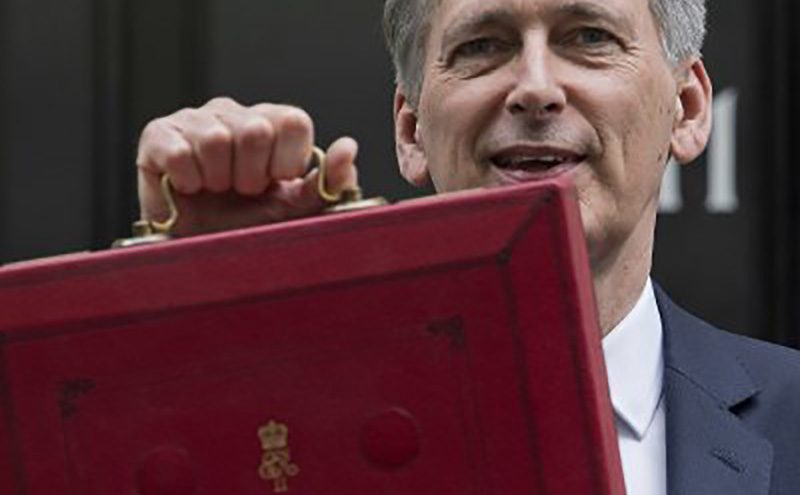
Responses to the Chancellor Philip Hammond’s 2017 Budget have so far been muted from professional groups and others working in the sustainability sphere.
It appeared to be a budget of missed opportunities, in the eyes of IEMA’s Chief Policy Advisor Martin Baxter: “While we knew this wouldn’t be a radical budget, it’s really surprising how little space and funding the Chancellor dedicated to environment and sustainability. I could say it’s disappointing, but in reality it means we’ve seen a number of missed opportunities for Government to tackle some big sustainability challenges.
“Scrapping the levy control framework without a clear plan of what will replace or supersede it is a real concern; failure to provide clarity will raise significant uncertainty for investment in renewable energy.
However, Baxter felt there were encouraging messages on air quality and technical skills. “Despite the many oversights, we do welcome the investment on tackling urban congestion as this can potentially underpin improvements to the UK’s air quality – but this must be focused on areas suffering from the highest levels of pollution.
“The introduction of new T Level qualifications to boost uptake of technical skills is a positive move. This will open up new opportunities for young people who are seeking future-fit careers in STEM-related professions, and will contribute to the UK’s low carbon economy.”
Not enough for the waste industry
Responding to the Budget proposals, Paul Taylor, CEO of FCC Environment, bemoaned a dearth of measures to assist the waste industry:
“While it is encouraging to see the Government pledge its ongoing support for UK infrastructure projects, we feel that a major opportunity has been missed to set out plans to maximise the resource productivity of the UK economy – a central pillar of the Industrial Strategy.
“At present, UK waste management companies are paying to export waste out of our country for incineration, which other countries use to make fuel to power homes and businesses – which is simply not sustainable. Following Brexit, we now have the chance to define our own approach to waste and resource policy, away from EU environmental diktats which could cost UK businesses an additional £2bn over the next 20 years. We would welcome clarity on future recycling policy direction”
“We urgently need a commitment from Government to further invest in our domestic waste management infrastructure, which will not only mean that we can manage our waste more efficiently, but also better safeguard the UK’s long-term energy security.”
BPF Director General Philip Law felt there were some contradictory messages, where waste was concerned: “On one hand, we see a positive increase in the recycling targets for packaging, but on the other hand the value of landfill tax remains unchanged. We would have liked to see a more coherent and ambitious approach by increasing landfill tax to further incentivise the recycling of our plastics back into new valuable products.”
With the Budget the Government has decided to opt for a mixture of recycling targets, following a consultation on new packaging recycling business targets for 2018-20, for overall recovery and recycling and material-specific targets for paper, steel, aluminium and wood. Options included retaining current targets with zero increase up to 2020, implementing targets that will effectively create a transitioning step towards circular economy objectives achievable by 2020 and 2030, or set new intermediary targets between the above options that are less stretching.
Robbie Staniforth, commercial manager at resource efficiency firm Ecosurety, commented: “It’s the first indication that we have received from Government that the environment is on the agenda, and we’re pleased to see they’ve opted for a change.
“We’re slightly surprised that they’ve opted for a mix of targets and our only concern is that big recycling jumps may create artificial spikes in PRN prices. As the years progress, it will be important to ensure these PRN revenues generated are directed to improving recycling in the UK. ”
Solar silence
Meanwhile, in the renewable energy sphere, those anticipating a reprieve for the UK’s 44,000 rooftop solar micro generators were to be sorely disappointed, with there being silence on the issue of the imminent 800% rise in business rates due to apply from April.
The tax hike comes as rooftop solar deployment is at a six year low. The STA has been pressing Government for nine months to drop the unfair rate hike, which does not reflect the increased rental value of properties.
Paul Barwell of the STA said;
“We are dismayed that responsible organisations that use their own rooftop solar are still facing an extreme business rate rise of up to 800% from April. Some fossil fuel technologies are already exempt from business rates, and today the Chancellor again took special care of oil and gas. It is surprising that the Treasury’s tax policies tend to yesterday’s technologies while putting clean, modern solar at a competitive disadvantage. The Chancellor says he wants the UK at the “cutting edge of the global economy”- his tax policies for energy risk the opposite.”
The STA says it will continue to oppose the business rate rise and will now look to Parliament to support corrective action.
There was further disappointment that the long term price signals investors need through the Carbon Floor Price has been deferred to Autumn. And the STA also expressed misgivings about the loss of the levy control framework. There was nothing in the Treasury announcement on replacing the LCF that gives desperately needed clarity to solar power which has been shut out from competitive access to wholesale markets. “The UK’s cheapest and most popular source of clean energy – solar – has been shut out of auctioning, meaning consumers pay more for decarbonisation and the immense competitive pressure that solar has provided has been removed from other technologies,” said an STA press release.
Paul Barwell said;
“Government continues to cherry pick more expensive technologies while shutting solar out of competitive auctions, even as its industrial strategy prioritises cheap power. This means business and consumers pay over the odds for decarbonisation, and competitive pressure is weak.
Suppressing solar in the UK is no way to ‘prepare for a global future’. Solar already dominates clean energy investment globally and it is expected to expand dramatically. It is also set to be the cheapest source of power in the world so countries that embrace solar will have a competitive advantage.”







